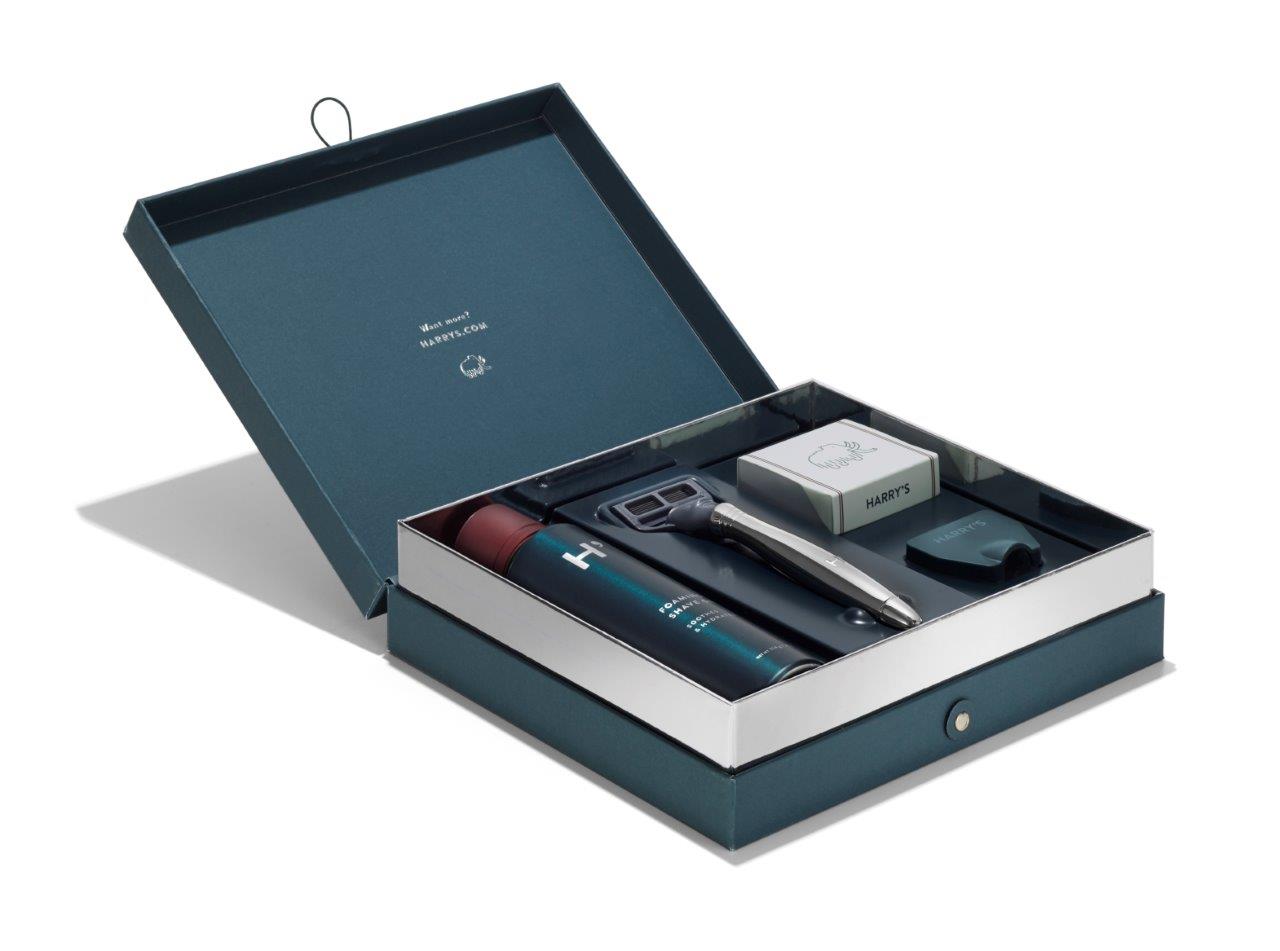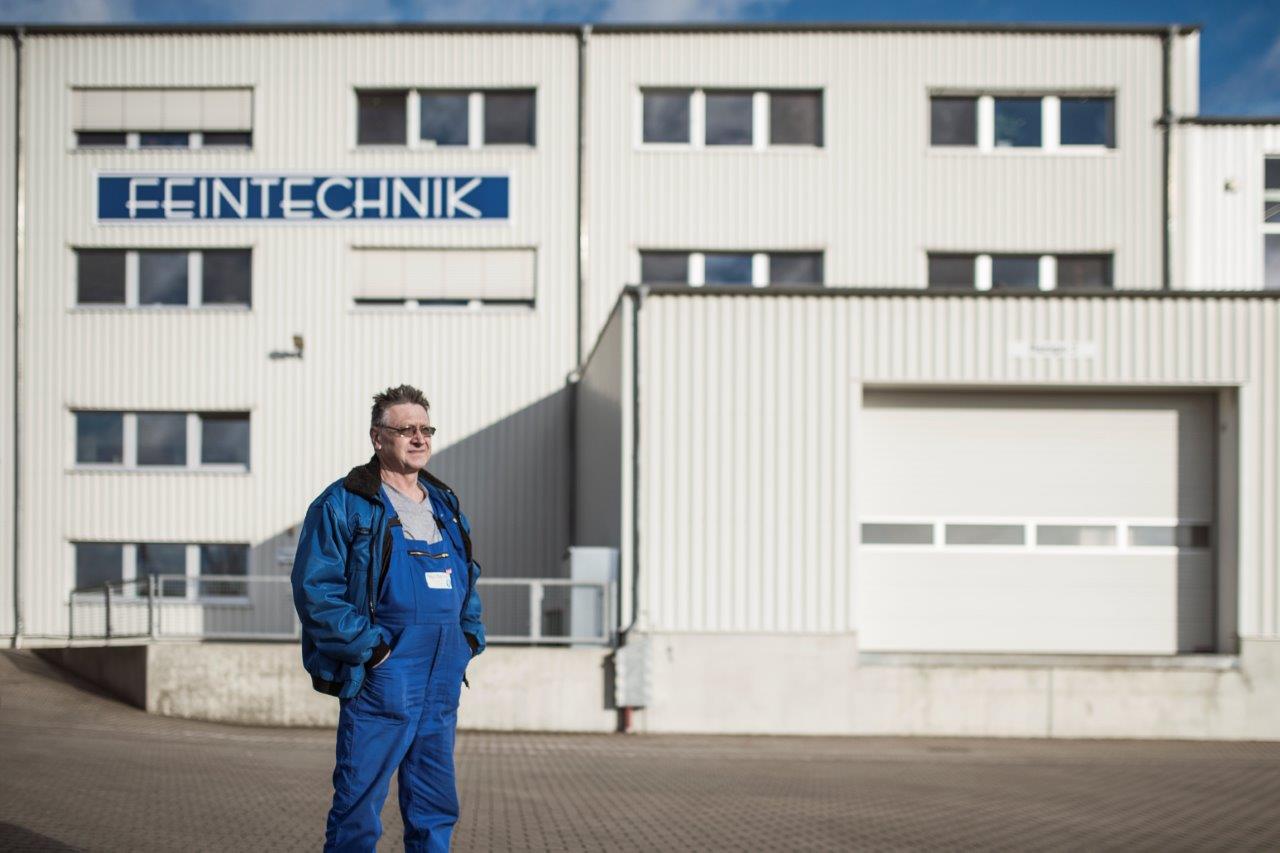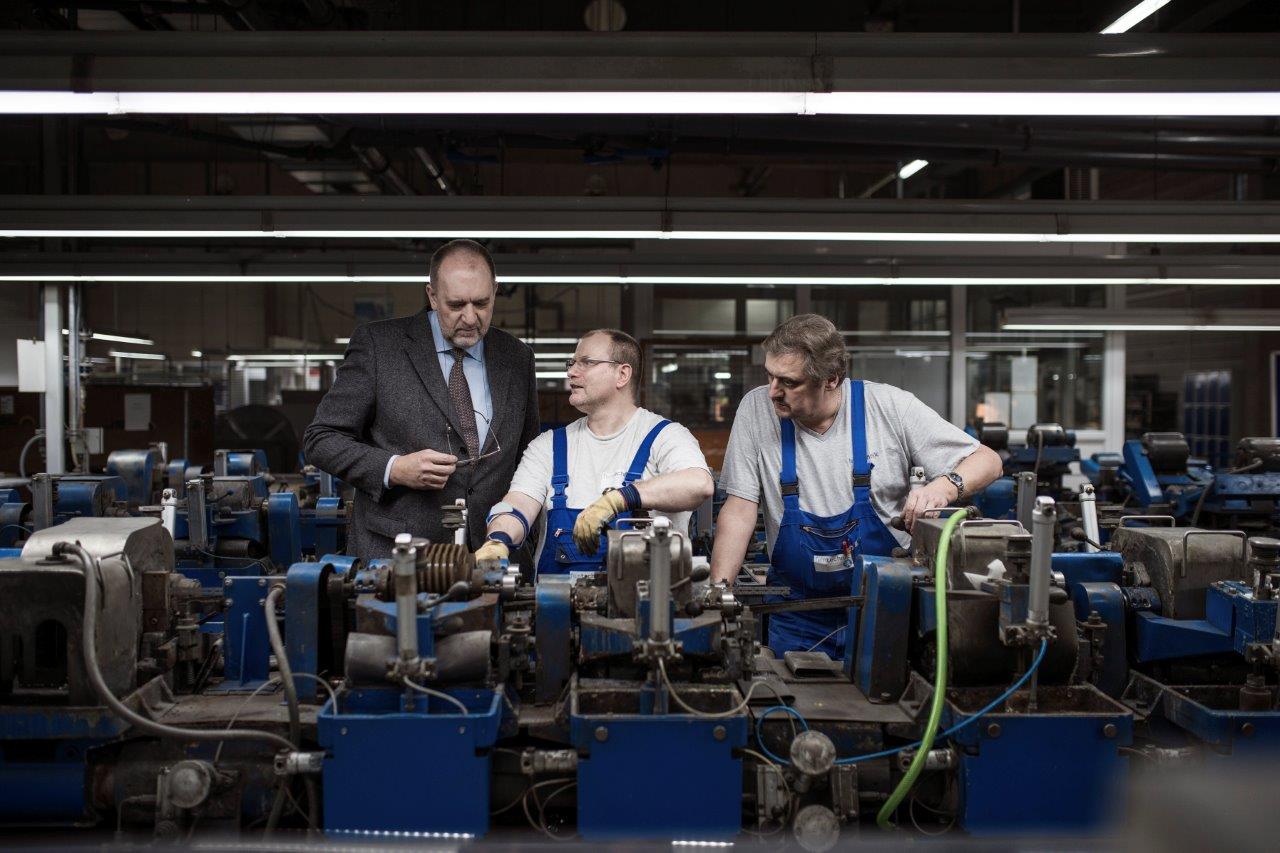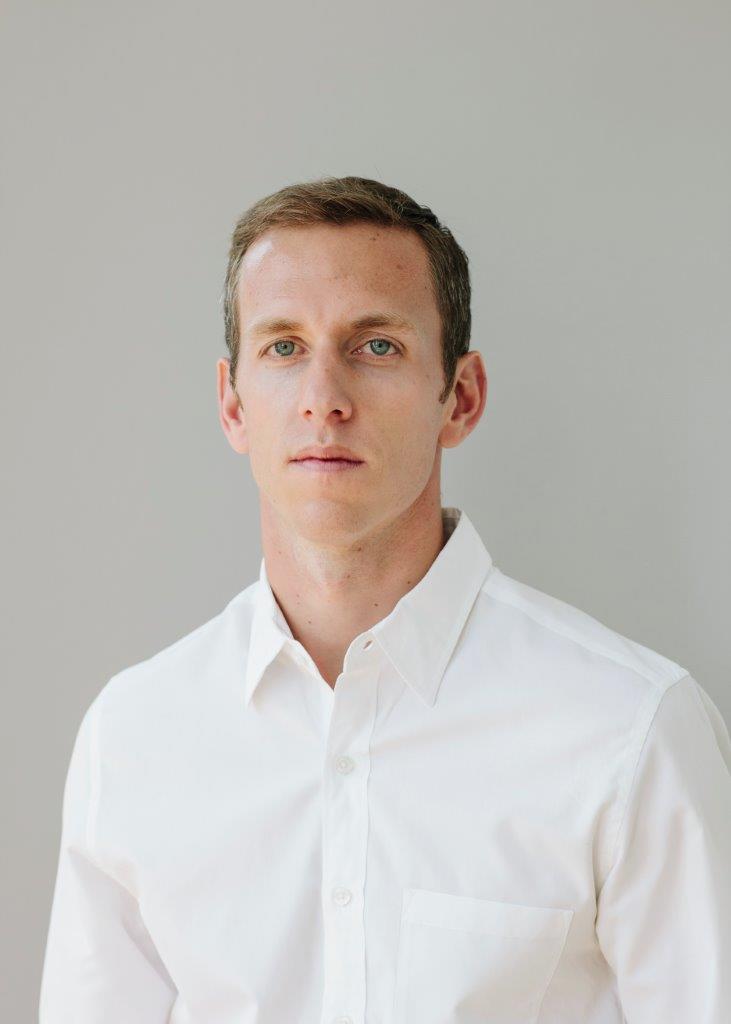Features
Interview by Markus Jones (Southern Mississippi)
Photos courtesy of Harry’s
Andy Katz-Mayfield (Duke) waited patiently for a drug store attendant to unlock the display case holding razor cartridges. A full ten minutes passed before the attendant came with a key allowing Katz-Mayfield to select his razors. After adding shaving cream, the cash register showed $25 for the cartridge of razor blades. “I wasn’t buying jewelry, I was buying razor blades,” says Andy Katz-Mayfield. “I knew I was getting taken advantage of as a consumer and thought it was pretty ridiculous to spend that much but there was no alternative.”
That day at the drug store proved a turning point for Katz-Mayfield. He walked out of the store and phoned friend Jeff Raider who, at the time, was an executive at online eyewear startup Warby Parker. Katz-Mayfield pitched Raider an idea for a new company that could manufacture inexpensive, high quality razors that could be sold directly to consumers online. So began Harry’s.
What started with Katz-Mayfield’s frustrated customer experience has now grown into a men’s grooming company of over 100 employees with a backing of over $200 million in investor capital. Equally impressive is Harry’s 2014 acquisition of a German factory that will allow it to take on men’s shaving industry leaders like Schick and Gillette. With the factory, Harry’s is producing and shipping their razors to its nationwide, online customer base.
Long before setting out to create a new razor company, Andy Katz-Mayfield and Jeff Raider had solidified their relationship. During their undergraduate days, Katz-Mayfield at Duke and Raider at Johns Hopkins, both interned at the Boston management consulting firm Bain & Company. The two continued their professional relationship after college while at Charlesbank Capital Partners, a private equity firm in New York. It was at Bain and Charlesbank where the pair sharpened their business and management skills through exposure to a variety of different organizations and industries.
Katz-Mayfield and Raider’s partnership was a natural fit. They were both passionate about designing quality products, building a brand that resonated with the modern man, and creating a better overall customer experience. “For Jeff and I there was a real deep level of trust and understanding. We have a very strong value alignment,” Katz-Mayfield says.
Building a new razor company didn’t happen easily. Katz-Mayfield and Raider faced challenges in choosing a razor design, finding a manufacturer, branding, and raising funds. What’s more, Harry’s was entering a market dominated by large companies Schick and Gillette. “It turns out that it’s actually really, really hard to manufacture high quality razor blades,” explains Katz-Mayfield. “That’s one of the reasons that the market is so consolidated. All the big guys do it themselves in house.”
After Katz-Mayfield pitched Raider his idea in October 2011, the two began studying design principles of common, hand-held tools. Finding what they liked best and most functional about those tools, Katz-Mayfield and Raider drafted several concepts they wanted in their new razor.

After studying the design principles of common, hand-held tools, Katz-Mayfield and Raider settled on their prototype that would become the Harry’s razor.
At the same time, the pair sought a manufacturing partner that could design and produce their concept for a new razor, what they call the Gothic Arch. The Gothic Arch is a technology that ensures the razor blade is strong yet also is extremely sharp at tip. “We knew we couldn’t build a brand if the product quality didn’t stand up,” said Katz-Mayfield.
This process proved challenging as only a few factories in the world have mastered the technology that Katz-Mayfield and Raider needed. After sampling a variety of products with no success, Katz-Mayfield and Raider considered abandoning the project. Yet, in January 2012, the pair achieved the breakthrough that made Harry’s a reality.
Katz-Mayfield and Raider discovered Feintechnik, a German company that had manufactured razors for 95 years. They liked Feintechnik’s quality and the cost was low enough to allow Harry’s to compete in the men’s shaving market. A partnership was solidified that ensured Harry’s would manufacture their razors through Feintechnik. With the relationship established, Harry’s began building its team, designing a brand and website, and creating the Harry’s 5-blade cartridge and other key features of its razor technology.
Katz-Mayfield and Raider launched Harry’s in March 2013, after building the company for over a year and securing intellectual property protection for their designs. After almost a year of successful operations, Harry’s moved to further shore up its operations by purchasing Feintechnik outright in January 2014.
Purchasing Feintechnik was big for Harry’s. As Katz-Mayfield pointed out, Harry’s is now vertically integrated, meaning it can cut the cost and time that come with shipping products from an outside supplier. The company can now develop their own razors in-house and experiment with new designs without the down side of paying for expensive trials and demos. On at least one occasion, Harry’s has tweaked its razor design based on feedback from customers, a process that would have been much more difficult without owning Feintechnik.
The flexibility to make design changes quickly and inexpensively gives Harry’s the edge it needs to stay competitive. “Along with Schick and Gillette, Harry’s is the only other company in the shaving category that controls design, manufacturing, and direct sales of their product,” wrote Phil Johnson, a contributor to Forbes.
A key ingredient of Katz-Mayfield and Raider’s entrepreneurial philosophy is authenticity which can be seen in all aspects of Harry’s culture, from its practically crafted razors to the company’s management strategy.
As Katz-Mayfield explains, the primary component of this authenticity is focusing on the underlying problem that Harry’s addresses. “It’s a lot easier to build a company that solves a problem that you empathize with, as opposed to trying to solve someone else’s problem. We’re not trying to create a brand that we thought would be cool or aspirational, but instead creating a brand that resonated with us personally,” said Katz-Mayfield.

In 2014, Harry’s acquired Feintechnik, a German company that had manufactured razors for 95 years. Feintechnik helped Harry’s solidify its design and is helping it to compete with shaving industry leaders.
The testament to Harry’s success is its exact alignment with the kind of company that Katz-Mayfield and Raider would want to buy razors from themselves. Rather than using whacky marketing tactics to impress customers that they don’t relate to, Katz-Mayfield and Raider are making products that they want and then trusting that the sales results will follow. “I think it makes it easier if you’re effectively the target for the product. You can emphasize and provide the feedback.”
Katz-Mayfield recalls one example to the contrary that helps explain this. While looking for a razor at his local drug store, Katz-Mayfield recalled that, “There was actually a package that had a picture of a razor blade flying over the moon on it. I thought it was a little bit absurd and a little bit overdone.”
It was this type of marketing gimmick that Katz-Mayfield wanted to avoid at Harry’s. “We try to be really stripped down, simple, and honest in our approach in the way that we talk to consumers and customers,” added Katz-Mayfield. “I think that when you can stay authentic to the roots that consumers can feel that.”
Another aspect of the company’s authenticity is how Katz-Mayfield and Raider relate to their employees and fellow team members. “We really try to provide as much information and context as possible to everybody in the company,” explains Katz-Mayfield. This even includes sharing financial information with every team member at Harry’s. “We’re not trying to hide anything from anybody as we value a culture of honesty and direct feedback.”
To offset the honesty and direct feedback, Katz-Mayfield and Raider try to infuse a sense of humor into their management. “We try to keep things lighthearted and realize that this is not life and death,” said Katz-Mayfield. “We’re not afraid to make fun of ourselves.”
Katz-Mayfield doesn’t believe that having a great idea makes an entrepreneur successful by itself. “Oftentimes in entrepreneurship the ideas are glorified. My experience was that the idea was 10% of it and then 90% of it was focusing on execution and operations.” This isn’t surprising considering that Harry’s – unlike many new startup companies – creates a physical product that is sold directly to consumers. In contrast with startups that focus on software or app creation, Harry’s has to effectively manage supply chain and manufacturing along with sales and design.
Yet the added complexity of a large-scale operation doesn’t faze Katz-Mayfield. “It’s just getting started and executing. If you make a mistake, learn from it. You’re going to hit a hundred road bumps along the way but you can’t be discouraged. View those as challenges to be overcome.”

Inside the Feintechnik factory where Harry’s manufactures high quality blades.
Katz-Mayfield attributes much of his success as an entrepreneur to the strong team that has surrounded him. At Harry’s, Katz-Mayfield and Raider have hired people who excel. “Everybody we hire should be better at what they do than what we are,” said Katz-Mayfield.
Hiring goes beyond finding the most technically competent applicants, however, and Katz-Mayfield emphasizes that value alignment is critical to assembling a great team. “You really want to make sure that there is value alignment there. ‘Does this person value the same things that I value?’”
Much like fraternity recruitment, Katz-Mayfield indicated that it’s important to go beyond simply what potential new hires say they believe in. Hiring appropriately requires investigation by the potential employer. “Nobody will say, ‘No, I don’t believe in honesty.’ It’s actually observing behavior and truly figuring out if those things are aligned,” said Katz-Mayfield. It’s also important for employers to ask how applicants have demonstrated those qualities in the past.
This value alignment goes both ways as many of Harry’s new hires are attracted to working for the company by its philanthropic culture. “I think particularly with the millennial generation they look at their place of work or any other organization that they are joining, and they expect that organization to live those type of values.”
To respond to this need, Harry’s has established at least one avenue for living its values as a company. The Harry’s 1% initiative is designed to do just that. As part of the 1% initiative, Harry’s gives 1% of its sales and 1% of its time volunteering to City Year in New York. City Year is an extension of AmeriCorps which places recent graduates in cities all across the country where they volunteer and serve the local community. “Our ability at Harry’s to attract really great talent is enabled partially by the notion that people want to work for a company beyond reasons that are based solely on revenue and profit,” concludes Katz-Mayfield.

For Katz-Mayfield, Sigma Nu had an excellent culture that helped form a common theme in his journey as entrepreneur.
While value alignment is critical for Harry’s, this does not mean that its employees all think the same way. “Actually having a diversity of backgrounds and ways to approach problems is really valuable,” says Katz-Mayfield. This is especially important for a company like Harry’s that values constant improvement in its employees. “We are a real learning culture. What I mean by that is everybody at all levels of the organization just really wants to learn and get better.” As a young company seeking to break into an entrenched industry, the need for constant improvement and a diversity of thinking in its employees is vital.
Ethical leadership for Katz-Mayfield is an important part of his work as a founder at Harry’s and entrepreneur. “It’s about defining a set of values and then actually living by those values.”
Katz-Mayfield doesn’t just see living by a set of values as something to be kept internal, it can also benefit society at large. “We look at certain constituents more broadly. It really is born out of a sense of responsibility to the broader community that we engage with. It’s about defining those values and being true to them both internally as a company and externally with consumers and customers,” he said.
Katz-Mayfield recalls positively his time as a collegiate brother with the Gamma Chapter at Duke University. “Some of my best friends in life were fraternity brothers at Duke.” For Katz-Mayfield, Sigma Nu had an excellent culture that helped form a common theme in his journey as entrepreneur. The connections he made through Sigma Nu ultimately led him to Bain & Company where he met Jeff Raider.
In all parts of his entrepreneurial journey, Katz-Mayfield has focused on surrounding himself with the best people he can – an attitude that all began at Duke University and Gamma Chapter. “It really does come down to the people. That’s fundamentally always been the decision making point for me.”